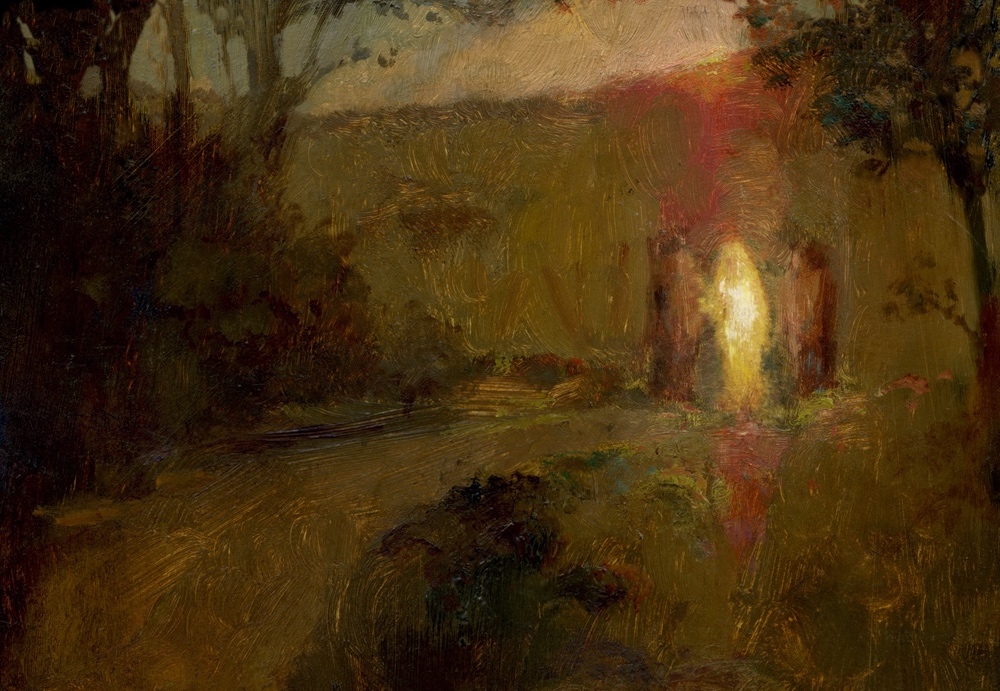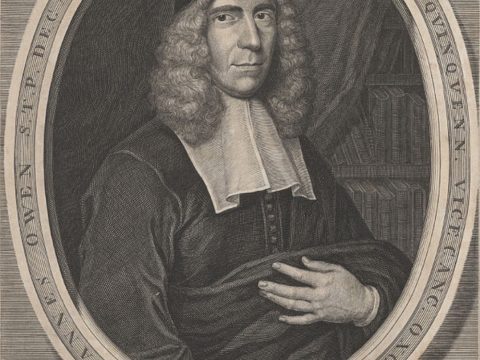
Sometimes it may be that He is withdrawn from us, so as that we cannot hear his voice, nor behold his countenance, nor obtain any sense of his love, though we seek him with diligence. In this state, all our thoughts and meditations concerning him will be barren and fruitless, bringing in no spiritual refreshment into our souls. And if we learn to be content with such lifeless, unaffecting thoughts of him as bring in no experience of his love, nor give us a real view of the glory of his person, we shall wither away as unto all the power of religion.
What is our duty in this case is so fully expressed by the spouse in the Song of Solomon, as represents it plainly unto the minds of believers, who have any experience of these things, chap. 3: 1-4, “By night on my bed I sought him whom my soul loveth: I sought him, but I found him not. I will rise now, and go about the city in the streets, and in the broad ways I will seek him whom my soul loveth: I sought him, but I found him not. The watchmen that go about the city found me: to whom I said, Saw ye him whom my soul loveth? It was but a little that I passed from them, but I found him whom my soul loveth: I held him, and would not let him go.” The like account she gives of herself, and of her behaviour on the like occasion, chap. 5: 2-8.
This is the substance of what by this example we are instructed unto. The Lord Christ is pleased sometimes to withdraw himself from the spiritual experience of believers; as to any refreshing sense of his love, or the fresh communications of consolatory graces. Those who never had experience of any such thing, who never had any refreshing communion with him, cannot be sensible of his absence; – they never were so of his presence. But those whom he has visited, – to whom he has given of his loves, – with whom he has made his abode, – whom he has refreshed, relieved, and comforted, – in whom he has lived in the power of his grace, – they know what it is to be forsaken by him, though but for a moment. And their trouble is increased, when they seek him with diligence in the wonted ways of obtaining his presence, and cannot find him. Our duty, in this case, is to persevere in our inquiries after him, in prayer, meditation, mourning, reading and hearing of the Word, in all ordinances of divine worship, private and public, in diligent obedience, – until we find him, or he return unto us, as in former days.
Generally, Christ is nigh unto believers, and of a ready access; and the principal acting of the life of faith consist in the frequency of our thoughts concerning him; for hereby Christ lives in us, as he is said to do, Gal. 2: 20. This we cannot do, unless we have frequent thoughts of him and converse with him. It is often said among men, that one lives in another; this cannot be but where the affections of one are so engaged unto another, that night and day he thinks of him, and is thereby, as it were, present with him. So ought it to be between Christ and believers. He dwells in them by faith; but the acting of this life in them (as wherever life is, it will be in act and exercise) are proportionable unto their thoughts of him, and delight in him.
If, therefore, we would behold the glory of Christ, the present direction is, that on all occasions, and frequently when there are no occasions for it by the performance of other duties, we would abound in thoughts of him and his glory. I intend not at present fixed and stated meditations, which were spoken unto before; but such thoughts as are more transient, according as our opportunities are. And a great rebuke it ought to be unto us, when Christ has at any time in a day been long out of our minds. The spouse affirms that, ere she was aware, her soul made her as the chariots of Ammi-nadib, Song of Solomon 6: 12. It so fell out, that when she had no thoughts, no design or purpose, for attendance on communion with Christ, that she was surprised into a readiness and willingness unto it. So it will be with them that love him in sincerity. Their own souls, without previous designs or outward occasions, will frequently engage them in holy thoughts of him; which is the most eminent character of a truly spiritual Christian.
John Owen. The Glory of Christ.



